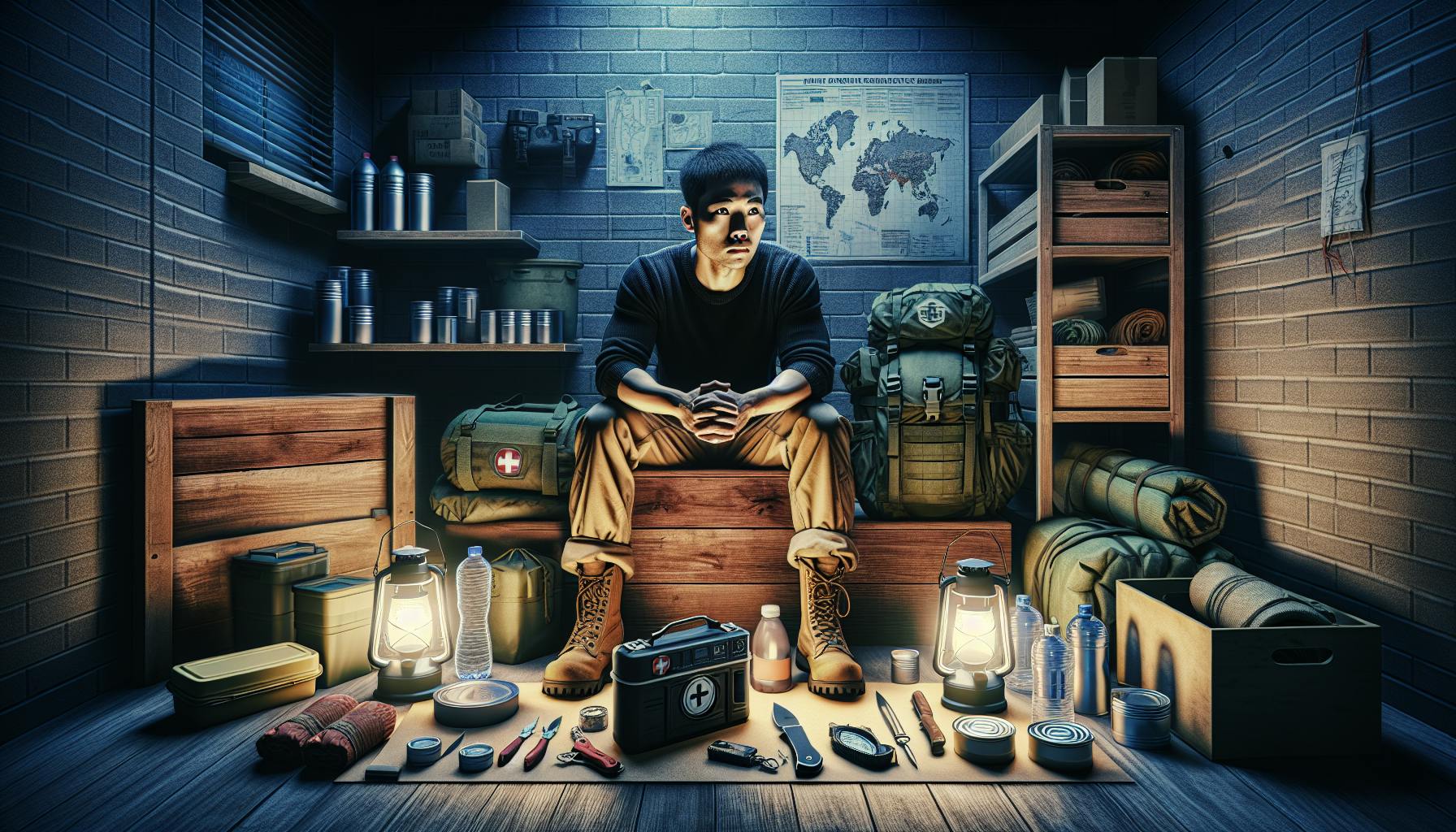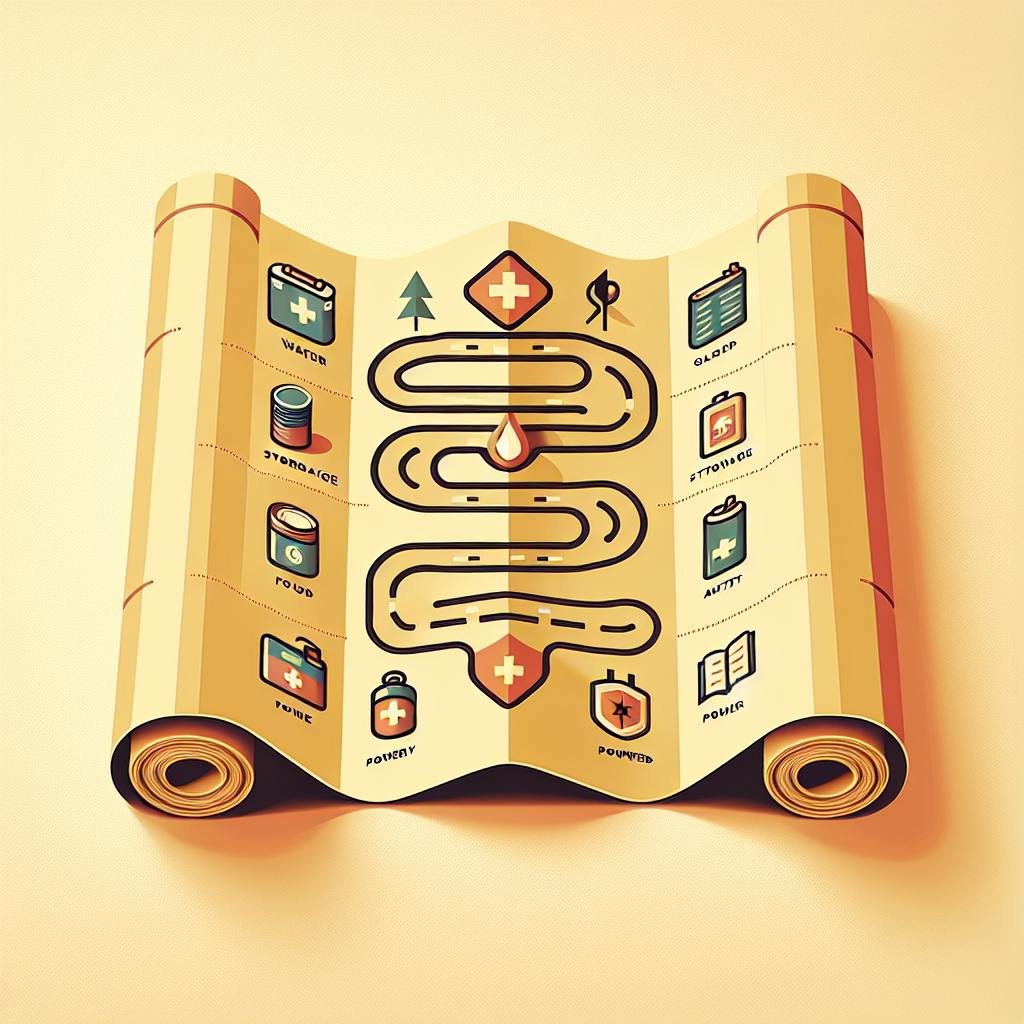Introduction to Living Off the Grid
"Living off the grid" refers to a self-sufficient lifestyle disconnected from public utilities like electricity, water, sewage, and more. Those who live off-grid produce their own power, harvest rainwater, grow or hunt their own food, and build structures outside of building codes and regulations.
The appeal of off-grid living includes independence, sustainability, cost-savings, and privacy. It allows one to live simply and be less impacted by society. With climate change and economic uncertainty, off-grid life has grown trendy, romanticized as an idyllic, eco-friendly existence.
However, the harsh realities of off-grid living rarely align with the dreamy aspirations. Total self-reliance requires nonstop work and brings constant challenges. This article will examine the significant downsides of off-grid living that aren't often discussed.
The Difficulties of Total Self-Reliance
Living off the grid means counting on yourself for everything. Achieving complete self-sufficiency can be extremely difficult to maintain long-term.
Generating your own power from solar, wind, or generators takes advanced technical skills and constant maintenance. Solar panels need regular cleaning and worn parts must be vigilantly replaced. Wind turbines have many intricate components requiring tuning and repairs. Generators call for frequent oil changes, filter replacements, and fuel top-offs.
Collecting and filtering rainwater demands intricate drainage and storage systems. Designing rain catchment requires calculating proper gutters, tanks, and filters. Water must be regularly tested for contaminants. Tanks and pipes need ongoing upkeep to prevent leaks.
Heating a home without central heat or cooling is tough, especially in extreme weather. Wood stoves must be constantly fed and maintained. Passive solar design, insulation, and thermal mass help, but keeping a space truly livable in subzero cold or sweltering heat is extremely difficult.
Foraging, gardening, hunting, and raising livestock to feed yourself year-round demands extensive knowledge and labor. Learning identification of edible plants, biology, and tracking takes years. Growing sufficient calories and nutrition through gardening needs farming expertise. Preserving and storing food long-term requires canning, smoking, curing skills. Processing hunted game and slaughtering animals are also skills that must be learned.
Building structures from scratch with natural materials takes tremendous time and effort. Felling trees, milling lumber, mixing concrete, and erecting structures by hand demands immense physical stamina. Learning engineering and construction techniques through direct experience can mean costly trial and error.
Injury, illness, disasters, and emergencies become frightening when you have no access to first responders or medical care. The isolation of rural living can also lead to severe loneliness and mental health issues.
Unpredictable Weather and Natural Disasters
Off-grid homes are vulnerable to weather damage without professional repairs and insurance. Wildfires, floods, tornados, and storms can completely destroy remote homesteads lacking most modern amenities and emergency services.
Stockpiling enough resources to survive long-term emergencies is extremely difficult. An entire year’s worth of food, water, and supplies takes massive storage space. Evacuation becomes complex from distant locations, and you may need to entirely restart your self-sufficient lifestyle if disasters strike. Rebuilding off-grid systems like solar arrays, water infrastructure, and shelters requires starting over from scratch.
Financial Burdens
Setting up off-grid living requires major upfront investment into solar panels, batteries, generators, and infrastructure for water, sewage, etc. These systems can cost tens of thousands of dollars even with DIY installation. Solar arrays alone are around $10,000 minimum, while whole house battery banks cost $5,000 or more. Generators run several thousand for reliable models, not to mention fuel costs. Drilling a well $3,000 - $15,000 depending on depth and location. Septic tanks range from $3,000 to $7,000 installed.
Even with DIY building and energy systems, costs add up quickly. Unpredictable repairs and maintenance of off-grid systems present costly surprises since you lack the fallback of public utilities. Earning substantial income is tougher when located far from economic hubs and opportunities. Despite isolation, property and land taxes still apply.
Health Risks
Accessing healthcare is incredibly difficult when living remotely. Risk of injury, illness, and disease increases without modern amenities and safety regulations. The physically strenuous off-grid lifestyle also causes chronic pain, stress, and fatigue.
Nutrition suffers from a lack of variety when you must produce most food yourself. Obtaining medications, medical equipment, prenatal care, vaccines, and emergency services often becomes impossible. Dental care, annual checkups, specialists and more require arduous trips to distant towns.
Lack of Modern Conveniences and Entertainment
Even the most adept off-gridders must sacrifice access to modern conveniences, entertainment, and experiences available to mainstream society. The isolation and lack of amenities impedes many activities people today take for granted.
Traveling to town for vital supplies, social engagements, and luxuries requires arduous trips. Forget about high-speed internet for streaming movies and music. Smartphones become paperweights without signal or power to charge them. Video games disappear from the entertainment lineup.
Giving up previously accessible goods, services, and activities is a major disadvantage. Homeschooling kids instead of traditional schooling also limits socialization and supplemental resources.
No More Takeout or Dining Out
Without nearby restaurants, fast food, or grocery stores, your food options become extremely limited. No more grabbing takeout on a whim or going out to dinner. Variety plummets when you can only produce or source food locally through farming, foraging, hunting, etc. Exotic imported flavors and convenient takeout cuisine become a thing of the past.
Fewer Options for Clothing and Consumer Goods
Shopping for clothing, gear, tools, and supplies at mainstream retailers is no longer feasible. Your possessions become restricted to homemade items, bartering within your community, recycling and repurposing what you have, and only occasional trips to distant towns. Big box stores overflowing with endless options do not exist off the grid.
Lack of Cultural Opportunities
Living off-grid means minimal access to cultural institutions and activities - no concerts, theater, museums, festivals, classes, etc. Isolation prevents engaging with the arts, entertainment, and learning opportunities that cities provide.
Staying current becomes difficult without access to the latest music, movies, events, and pop culture trends. Spontaneous vacations or short trips do not fit with the constraints of rural life. You may also clash with local culture if settling in a very remote area without modern amenities.
Regulations and Legal Restrictions
While off-gridders may feel "free" from mainstream society in some ways, laws and regulations still apply. Building codes, zoning laws, permits, and taxes complicate the off-grid lifestyle.
Harvesting natural resources like rainwater or living in vehicles/RVs long-term often violates local statutes. While you may feel disconnected from government oversight, they still mandate and restrict certain aspects of off-grid living.
Difficulty Obtaining Land
Finding affordable land appropriate for off-grid homesteading can prove challenging. Qualifying for property loans is complex without traditional income sources. Deeds and titles still apply for legal ownership, and indigenous groups may contest your rights to the land. Prime off-grid land often costs significantly more than conventional properties.
Children's Schooling
Homeschooling has strict curriculum requirements in many states, and proving adequate instruction while off-grid is arduous. The paperwork, testing, and compliance mandated for homeschooling adds significant burden when living remotely. As the teacher, your own subject matter expertise is limited. Providing a well-rounded education, socialization, supplemental learning opportunities and extracurricular activities for kids in remote areas is extremely difficult.
Tax and Healthcare Implications
You must still file taxes, declare income sources, and meet insurance minimums when living off-grid in the United States. However, you become ineligible for many government welfare programs without a documented address. Homesteading expenses also can't be written off.
Going Back to Modern Society
If off-grid life doesn't work out, returning to modern society brings massive challenges. Years removed from the workforce can make gaining employment difficult and spark culture shock.
Transitioning back from off-grid isolation is also expensive - re-gridding utilities, renovating derelict structures, replacing outdated possessions, etc. requires major investment. Learning technology and social media you missed while off-grid also takes time. The defeat and sense of failure can be demoralizing after abandoning the dream of self-sufficiency.
Saving Up Adequately Before Going Off-Grid
Experts recommend having at least 6 months of living expenses saved before attempting off-grid life. This financial cushion provides stability as you navigate challenges and unexpected costs. Money to get back on your feet is also wise in case the lifestyle doesn't work out. Research all costs and conduct thorough planning.
Trying Before Committing Fully
Test off-grid living for a period before selling your home and assets. Start on weekends or vacations to hone essential skills and knowledge first. Consider renting rural land temporarily rather than buying right away. Be open to incorporating some modern amenities to make the transition more comfortable. Get experience with tasks like food production, water collection, and alternative energy generation.
Networking with Other Homesteaders
Join off-grid communities online and in-person for support before and after going off-grid. Attend workshops to expand your knowledge. Barter skills and resources with other homesteaders. Humans need community, so avoid isolating yourself entirely. An off-grid network provides mentorship, troubleshooting assistance, and social interaction.
Conclusion
The romanticized idea of off-grid living often overlooks the relentless work, acute risks, and numerous challenges involved with achieving self-sufficiency. While the lifestyle offers certain rewards for some, one must be mentally and physically prepared to tackle the harsh realities. For those considering going off-grid, thorough preparation, backup funds, transitional periods, and strong networks are key to giving yourself the best chance of success. The difficulties can be conquered with diligence and determination, but shouldn't be underestimated. Despite the alluring vision of independence and sustainability, off-grid life requires immense sacrifice and toil.


